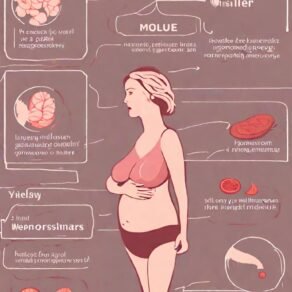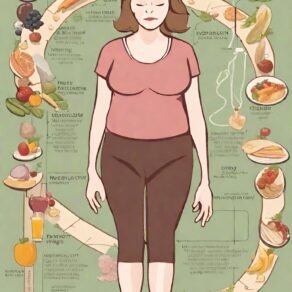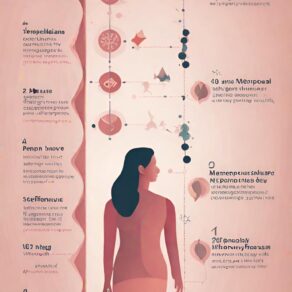Introduction:
Menopause is a natural biological process that marks the end of a woman’s reproductive years. It is a significant milestone in a woman’s life, accompanied by various physical and emotional changes. In this article, we delve into the meaning of menopause, its stages, symptoms, and the impact it has on women’s health and well-being.
Understanding Menopause:
Menopause refers to the cessation of menstruation and the end of a woman’s fertility. It typically occurs between the ages of 45 and 55, with the average age of onset around 51 years old. Menopause is characterized by a decline in the production of reproductive hormones, particularly estrogen and progesterone, which leads to the cessation of ovulation and menstruation.
Stages of Menopause:
- Perimenopause: Perimenopause, or the menopausal transition, refers to the period leading up to menopause when hormonal fluctuations begin and menstrual irregularities occur. This stage can last for several years and is characterized by symptoms such as hot flashes, night sweats, mood swings, and changes in menstrual cycle length and flow.
- Menopause: Menopause is officially diagnosed when a woman has gone 12 consecutive months without a menstrual period. At this stage, ovarian function has ceased, and estrogen levels have significantly declined.
- Postmenopause: Postmenopause refers to the period following menopause when hormonal levels stabilize at lower levels. Women may continue to experience symptoms such as hot flashes and vaginal dryness during postmenopause, but the intensity typically diminishes over time.
Symptoms of Menopause:
Menopause is associated with a range of physical and emotional symptoms, including:
- Hot flashes
- Night sweats
- Mood swings
- Fatigue
- Insomnia
- Vaginal dryness
- Decreased libido
- Changes in urinary function
- Changes in skin and hair
Impact on Women’s Health and Well-being:
Menopause can have a significant impact on women’s health and well-being. The decline in estrogen levels during menopause can increase the risk of various health conditions, including osteoporosis, heart disease, and cognitive decline. Additionally, menopausal symptoms such as hot flashes and mood swings can affect quality of life and emotional well-being.
Management of Menopause:
While menopause is a natural process, there are various strategies to manage symptoms and support overall health and well-being during this transitional phase. These may include:
- Hormone replacement therapy (HRT) to alleviate symptoms and reduce the risk of osteoporosis
- Lifestyle modifications such as healthy eating, regular exercise, stress management, and adequate sleep
- Alternative therapies such as acupuncture, herbal remedies, and mindfulness practices
- Regular health screenings and preventive measures to monitor and manage health conditions associated with menopause
Conclusion:
Menopause is a significant transition in a woman’s life, marking the end of her reproductive years and signaling the beginning of a new phase of life. While menopause brings about physical and emotional changes, it is also a time of empowerment and self-discovery. By understanding the meaning of menopause, its stages, symptoms, and impact on health and well-being, women can navigate this transformative phase with knowledge, resilience, and confidence. With the right support and resources, women can embrace menopause as a natural part of the aging process and live vibrant, fulfilling lives beyond reproductive years.





